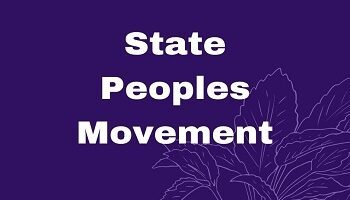Estimate of Alauddin Khilji (1296-1316):
Alauddin Khilji was undoubtedly the greatest among the Sultans of Delhi. He established an undiluted despotism by bringing the Turkish nobles, the ulema, the Hindu landowners, the business community and the masses to a state of common subjection to his authority. He carried militarism to its apotheosis and demonstrated what an able and resolute sovereign could achieve in the sphere of government and empire-building merely by clever manipulation of the army.
Alauddin was a man of great discernment, irrepressible courage and burning ambition. He was an excellent judge of men and much of his success was due to the right selection of persons for carrying out his multifarious schemes. He would not compromise the high dignity of the sovereign but he was not so vain as to regard the acceptance of other people’s suggestions as derogatory to his pride. He took a decision with due care and deliberation but once it had been made he would stick to it regardless of consequences. He was neither vain and obstinate like Muhammad bin Tughluq nor a slave of his passions like Kaiqubad nor unduly afraid of Mongol incursions like Balban. In many respects, he anticipated Sher Shah. Just like him, he had risen from humblest beginnings to the high office of the sovereign and had no scruples in using whatever means as suited his purpose. Like Sher Shah, he made novel experiments in government and adopted a religious policy that served as a model for him. But in courage and heroism, he was perhaps greater. He initiated the conquest of the Deccan, drove the Mongols beyond the Indus and put an end to the fear of their invasions in future. His policy struck new lines and in many respects served as a model for Muhammad bin Tughluq, Sher Shah and Akbar. Price control and regulation of the market was unprecedented and yet it was a remarkable success so that black-marketing, bribery, corruption or breakdown of arrangement was unheard of. This speaks volumes in his favour.
Alauddin Khilji was an illiterate person but he made good this deficiency by occassionally consulting people learned in the law. He had great respect for the principles of his faith but was never so indiscreet as to follow them blindly, regardless of time and place. Although an autocratic despot, he was generally impartial in his approach so that it was impossible to whip up passions against him on a racial or communal basis.
His methods were at times fiercely ruthless but it has been contended that in the then circumstances, it was impossible to govern with success without resort to such methods. It may be doubted whether a slightly milder policy would not have been equally effective. It may, however, be noted that Alauddin’s hand fell principally on the oppressors of the people viz., the nobles, soldiers, merchants and landowners. It is therefore not impossible that the common people might have hailed it as a welcome relief to themselves.
Alauddin had his own faults. His personal character was not free from blemish. His relations with Kafur or his treatment of his first wife was according to Balban’s standards, unworthy of a sovereign. He was selfish and arrogant, cruel and unscrupulous and his murder of Jalaluddin was his worst crime. In pursuance of his aims, he paid no heed to the sentiments and wishes of others. Nor was he very scrupulous in the observance of the principles of his faith in his personal life. It was expected of a Muslim sovereign to inspire respect for the faith by his personal conduct. But except prohibition, there was nothing in the conduct of Alauddin to make him an ideal Musalman. In the face of these defects, he cannot be called a great man but his political and military triumphs do entitle him to high respect even though his success was personal and therefore impermanent. Except for Sher Shah and Akbar, no Muslim sovereign of India can stand comparison with him and there is none superior to him except Akbar.









Comments (No)